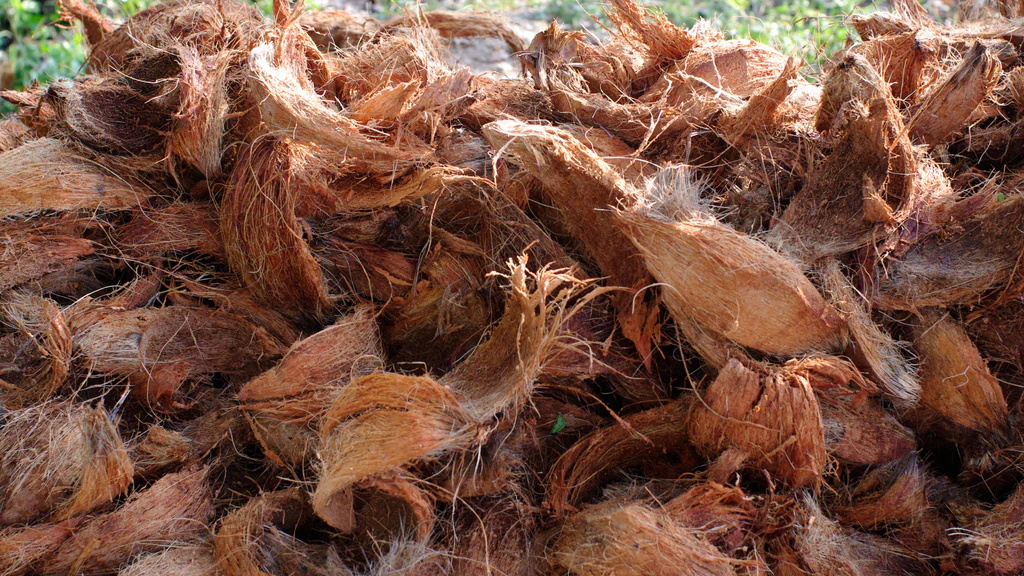Unveiling the Wonders: Exploring the Innumerable Benefits of Coconut Fiber. In the world of sustainable living and eco-friendly practices, the spotlight is increasingly turning towards natural alternatives. One such wonder material gaining prominence is coconut fiber. Derived from the husk of coconuts, this versatile and renewable resource is making waves across various industries. In this comprehensive article, we will delve deep into the benefits of coconut fiber, exploring its applications in agriculture, construction, textiles, and more.
Exploring the Innumerable Benefits of Coconut Fiber
1. The Eco-Friendly Nature of Coconut Fiber
Coconut fiber, also known as coir, is hailed as an environmentally friendly material. Harvested from the husk of coconuts, which would otherwise be discarded as waste, coir is a byproduct that reduces environmental impact. The cultivation of coconuts does not require harmful pesticides or fertilizers, making coconut fiber a sustainable choice for a greener planet.
2. Agriculture Revolutionized – Coconut Fiber in Horticulture
The benefits of coconut fiber extend to the field of agriculture, where it has proven to be a game-changer. Coir is widely used as a growing medium in horticulture, providing an excellent alternative to traditional soil. We will explore how coconut fiber enhances soil structure, water retention, and nutrient availability, fostering healthier plant growth and increased crop yields.
3. Building a Sustainable Future – Coconut Fiber in Construction
In the construction industry, architects and builders are turning to coconut fiber for its remarkable properties. From reinforcing concrete to creating eco-friendly insulation materials, coconut fiber is revolutionizing the way we build. This section will delve into the structural benefits of coir, its fire-resistant properties, and how it contributes to energy-efficient and sustainable construction practices.
4. Fashioning a Greener Wardrobe – Coconut Fiber in Textiles
In the world of fashion, sustainable and eco-friendly choices are gaining traction. Coconut fiber, with its strong and durable characteristics, is finding its way into the textile industry. We will explore how coir is processed into fibers, woven into fabrics, and used in clothing and accessories. Additionally, the benefits of coconut fiber in terms of breathability, moisture-wicking, and biodegradability will be discussed.
5. Coconut Fiber in Erosion Control and Landscaping
Erosion is a significant environmental challenge, and coconut fiber has emerged as a natural solution for erosion control. This section will explore how coir mats and blankets are used to stabilize slopes, control sedimentation, and protect landscapes from the devastating effects of erosion. The benefits of coconut fiber in landscaping and ecological restoration projects will be highlighted.
6. Harnessing the Power of Coconut Fiber – Bioenergy and Biodegradable Products
Coconut fiber is not only beneficial during its use but also after its life cycle. In this section, we will delve into how coconut fiber contributes to bioenergy production through the generation of biogas. Additionally, the biodegradable nature of coir products will be explored, emphasizing how they reduce the burden on landfills and promote a circular economy.
Conclusion
In conclusion, the benefits of coconut fiber are far-reaching and diverse. From transforming agriculture to revolutionizing construction, textiles, and beyond, coir stands as a testament to the incredible potential of natural, sustainable materials. As we navigate the challenges of the modern world, coconut fiber emerges as a beacon of hope for a more eco-friendly and resilient future. Embracing this versatile resource can pave the way for a greener, cleaner, and more sustainable planet . Experience the perfect blend of style and sustainability with Coco Shade, adding a touch of natural elegance to your space.

